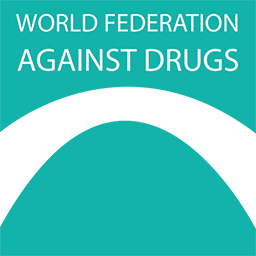Elimination of Violence Against Women and will end on December 10th on the International Day of Human Rights, the WFAD Gender Working Group is publishing statements every day highlighting issues faced by different specific populations while continuing to highlight the topic of this year: UNiTE! Activism to End Violence against Women and Girls
Gender-based violence and substance use are strongly interlinked. The negative health impact the experienced violence has on the survivor can lead to substance misuse. Additionally, substance use perpetrator often accelerates violence. Therefore, each statement, calling for preventing and eradicating gender-based violence, also calls for substance use prevention as well as sensitised and comorbid treatment.

Violence against Elderly Women is happening around the world. It is an issue that faces strong taboos, deep-rooted sexist and ageist prejudices, stereotypes, and discriminatory cultural and social norms. Whereas “power dynamics and inequalities leading to emotional, financial, material, physical, and sexual violence are likely to exacerbate with older age” (OHCHR 2020). The latest numbers in 2020 showcase that around one in six people aged 60 and above experienced some form of abuse in community settings (OHCHR 2020). The numbers increased considerably during the COVID-19 pandemic to 34 per cent of women aged 60 and above who have experienced violence or know someone who has. The number of people aged 60 and above is expected to grow to 1.4 billion in 2030, with women outnumbering men and living mainly in low- and middle-income countries (The World Bank, et al. 2016). Therefore, action on this issue is required NOW.
The statement produced by UN Human Rights experts showcases that age and gender are intersected and risk factors, types of violence, neglect, and perpetrators are different in older age. However, the issue remains insufficiently understood and researched. Yet, studies show that the perpetrators of violence against elder women are most commonly a male intimate partner, a family member, or a caregiver. Risk for violence increases for older women living in institutional settings and women with disabilities and dementia. Additionally, traditional practices and customs, humanitarian crises and armed conflicts, and sexual violence affect older women. The latter is prevalent but remains ignored “due to the erroneous assumptions that sexuality and sexual violence disappear with age” (OHCHR 2020). The invisibility of violence against elder women makes their situation more vulnerable. However, the invisibility is strengthened due to the inability to speak out due to social pressure, insufficient data and lack of research, and inadequate laws, policies, and awareness-raising campaigns.
The correlation between substance use, gender-based violence, and older women is under-researched. However, it is evident that there is a correlation between substance use and gender-based violence. Elder women can be more sensitive to substances and their use could lead to impaired judgement, coordination, or reaction time, which could increase their vulnerability to being subject to violence. As mentioned earlier, older women living in institutional settings are at a heightened risk to experience violence, which would also include older women with substance use disorder in treatment. Especially, since treatment for older women faces insufficient evidence-based interventions and is more likely to be socially and economically disadvantaged and marginalised, which increases their vulnerability (WFAD GWG 2022).
Therefore, it is necessary to start focusing on older women [in correlation with substance use] and gender-based violence. An increased focus on research is necessary to increase understanding and visibility. Simultaneously, awareness-raising campaigns are significant in raising the issue within the community, among healthcare providers, policymakers, and other key stakeholders. Additionally, older women should be provided with safe environments and enjoy services where they are able to speak up and enter to receive protection from violence.
References
OHCHR. 2022. UN experts urge States to address violence, abuse and neglect of older women. https://www.ohchr.org/en/press-releases/2022/06/un-experts-urge-states-address-violence-abuse-and-neglect-older-women
The World Bank, the Global Women’s Institute, IDB, and ICRW. 2016. Violence Against Women and Girls Resource Guide – Brief on Violence Against Older Women. https://www.un.org/esa/socdev/documents/ageing/vawg_brief_on_older_women.pdf
WFAD GWG. 2022. Position Paper: Gender-Specific Treatment & Recovery. https://wfad.se/wp-content/uploads/2022/04/WFAD-GWG-Treatment-and-Recovery-FINAL.pdf


Leave a Reply
You must be logged in to post a comment.